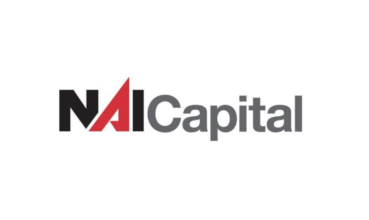Terry Harris was playing in the NBA G League when he began fixing and flipping homes for supplemental income. Today, he leads the development of 580 units across Los Angeles as the CEO of Vi...
How Cornerstone Capital Bank Advances Home Builder Financing




With interest rates fluctuating and affordability concerns mounting, Cornerstone has positioned itself as a vital partner to the homebuilding industry through innovative financing solutions that help builders sell homes and buyers achieve ownership.
“The dream of homeownership is something that Cornerstone wanted to get behind and support, and the best way to do that was through home builders,” explains Mike Iorio, Senior Vice President at Cornerstone Capital Bank. In today’s challenging housing market, this vision has become more crucial than ever.
A Faith-Based Foundation with Builder Focus
Founded 37 years ago as a mortgage company, Cornerstone has evolved while maintaining its core values. “We’re a privately held bank started by the same family that still runs it today,” Iorio explains. “Marc Laird, our founder, remains chairman. We’re really a faith-based company, and we put that at the forefront of everything we do.”
This foundation guides their strategic decisions, including their deliberate focus on the homebuilding industry. “We dedicated ourselves over the last 20 years to supporting home builders throughout the country,” Iorio notes. The results speak for themselves: approximately 70% of Cornerstone’s funded loans originate from partnerships with new construction builders.
While headquartered in Houston with a strong presence in the South, Cornerstone operates nationally, lending in all 50 states with offices from Seattle to Charlotte. They currently work with over 100 builders across the country, from small-scale operations to major developers closing thousands of homes annually.
Three Tiers of Strategic Partnership
What distinguishes Cornerstone is their tailored approach to builder partnerships, offering three distinct models based on a builder’s size and objectives:
1. Preferred Lender Relationships
For smaller builders, the preferred lender model provides consistency without requiring significant investment. “If you were selling 10 homes this month with 10 different lenders, how would you track your backlog?” Iorio asks. “With two preferred lenders handling eight of those sales, you gain valuable consistency.”
Builders receive access to Cornerstone’s full suite of products and specialized services while gaining control and certainty in their sales process.
2. Broker Joint Ventures
For builders selling approximately $100 million in homes annually, Cornerstone offers a broker joint venture model creating a new, licensed mortgage broker entity jointly owned by both parties.
“The origination activity and processing occurs within the joint venture, then loans are sent to a wholesaler,” Iorio explains. This model requires less capitalization than a full banking venture while still providing builders with quarterly distributions based on ownership percentages.
3. Banker Joint Ventures
For larger builders with sales exceeding $150 million, Cornerstone offers a full mortgage banking joint venture. “This is a licensed separate legal entity where origination, processing, underwriting and closing all happen within the venture,” Iorio details.
These ventures maintain their own warehouse lines and funding sources, requiring capitalization of over $1 million. They’re HUD-approved for originating FHA loans directly, with some of Cornerstone’s largest joint ventures closing well over $1 billion in mortgage volume annually.
Forward Commitments: The Game-Changing Tool
In today’s high-interest environment, forward commitments have become one of Cornerstone’s most valuable offerings to builders.
“A forward commitment is when a builder buys a block of money from a mortgage bank and applies discount points to bring rates down,” Iorio explains. This creates multiple advantages:
- Marketing power: Builders can advertise attractive rates (often around 4.99%) to drive foot traffic.
- Regulatory flexibility: Since commitments are established before buyers contract for homes, costs don’t count toward interested party contribution limits set by agencies like FHA.
- Expanded buyer pool: Lower rates significantly increase the number of qualified buyers in markets where home prices have risen but wages haven’t kept pace.
The popularity of this tool has skyrocketed. “We closed two and a half times more forward commitments in ’24 than we did in ’23,” Iorio notes. This aligns with broader industry trends, with approximately 80% of new home sales now including some form of incentive.
Benefits Beyond Financing
For builders, these partnerships deliver advantages extending far beyond mortgages:
Streamlined Operations
With a dedicated mortgage partner, builders can track their entire sales pipeline in one place. “Imagine seeing 90% of your pipeline and backlog in one system, with all the assurances that provides,” Iorio says.
Brand Extension
Most joint ventures operate under neutral third-party names rather than builder brands. This strategic decision allows the mortgage company to serve customers who might ultimately purchase from different builders.
“Someone may get pre-qualified with us, love our mortgage company, but decide not to buy one of our partner’s homes, we can still finance their purchase elsewhere,” Iorio explains.
Consistent Customer Experience
Perhaps most importantly, these partnerships create a seamless homebuying journey. “The builder culture permeates through the mortgage operation, creating a seamless handoff between sales associates and loan officers,” Iorio says.
With builder representatives sitting on joint venture boards, they help shape the entire customer experience, something impossible to achieve when working with multiple lenders.
Strategic Advantage Through Banking Acquisition
In 2022, Cornerstone made a significant move by acquiring Roscoe State Bank, becoming only the second independent mortgage bank to purchase a depository institution in the country and the first in Texas.
“That was done to ensure liquidity and our ability to support home builders regardless of market conditions,” Iorio explains. This decision provides crucial stability during disruptions like those experienced during the 2007-2008 financial crisis or early COVID-19 pandemic.
“By having our own depository base and portfolio, we can commit to builders that regardless of external market conditions, we have the financial strength to ensure they can close loans,” Iorio states. “They can’t sell homes if we can’t fund loans.”
Looking Ahead with Confidence
Despite market uncertainties, Iorio remains optimistic about Cornerstone’s growth. Many existing partners are expanding their joint venture relationships after validating the model’s success.
“They’re saying, ‘We validated the joint venture model. This is the way to go. We need to expand,'” Iorio shares. After weathering the challenges of fluctuating interest rates, builders are now seeking ways to turn market conditions to their advantage.
Cornerstone’s value proposition is clear: “If we’re doing things right, we’ve got the products, support, and infrastructure to help builders qualify more buyers, sell more homes, and do it more profitably.”
For builders navigating today’s complex housing market, this combination of financial tools, operational support, and strategic partnership offers a compelling path forward, one that Cornerstone Capital Bank has refined through decades of dedicated service to the homebuilding industry.
Similar Articles
Explore similar articles from Our Team of Experts.


“The market has declined approximately 15-20% compared to listing prices over the past nine months,” says Nicolai Todosiciuc, a real estate agent with Realty One Group MVP servin...


With nearly two decades at NAI Capital Commercial, Tim Steuernol has witnessed multiple market cycles in Los Angeles real estate. While his portfolio includes industrial, retail, and office ...


In the ever-changing landscape of Southern California’s luxury real estate market, Ty Bergman stands as a beacon of experience and adaptability. With roots tracing back to 1989, Bergma...


In the late 1990s, when Florida was still primarily known as a vacation destination with limited career options, Zev Freidus saw something different: opportunity. Moving from New York with a...




